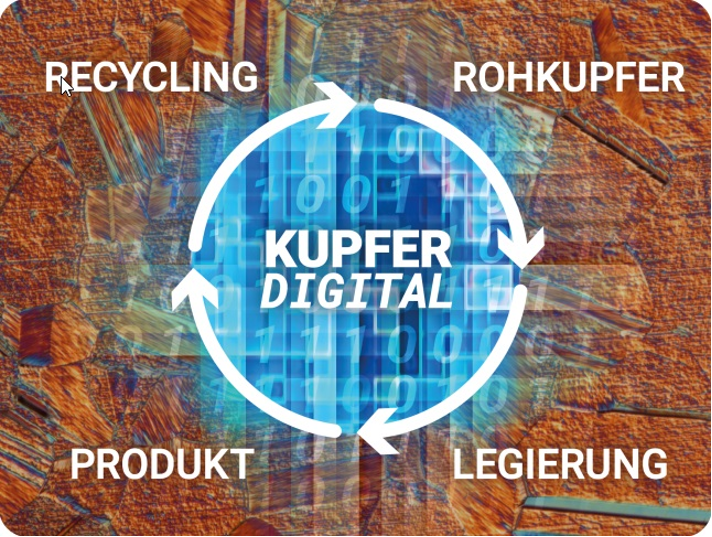
KupferDigital
Datenökosystem für die digitale Materialforschung auf Basis Ontologie-basierter digitaler Repräsentationen …
Register for our newsletter

The MaterialDigital initiative is driving the development of a material data space that integrates data and its processing. With this holistic approach, we support research, development, and industry along the entire value chain and serve as a guide in digitalization.
Our initiative consists of the MaterialDigital platform and its associated projects. Together with our partners, we develop and test solutions for digitalization in materials science and engineering.
Our goal is to develop digitalization solutions that can be used by small and medium-sized enterprises, research laboratories, and industry alike. We can only overcome this challenge if we take the journey together. For this reason, our principle is based on an open community that invites all interested parties to participate.
We are committed to transparent and participatory development. Our activities are funded by the BMBF, and the solutions we develop are made accessible according to the FAIR principles so that they can serve as a guide for materials science and engineering.
Self-descriptive capability of data, integration of application ontologies into PMD Core Ontology
Working environments for the digital workflow and the used simulation, measurement, and analysis methods
Establishment and use of a decentralized VPN network and central PMD servers
Knowledge transfer, networking, and communication within the community and externally
